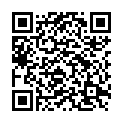|
|
|
| Module code: MAIM-246 |
|
|
4V (4 hours per week) |
|
6 |
| Semester: 2 |
| Mandatory course: yes |
Language of instruction:
English |
Assessment:
Written exam (120 minutes / can be repeated semesterly)
[updated 30.01.2020]
|
MAIM-246 (P420-0294) International Management, Master, ASPO 01.10.2020
, semester 2, mandatory course
|
60 class hours (= 45 clock hours) over a 15-week period.
The total student study time is 180 hours (equivalent to 6 ECTS credits).
There are therefore 135 hours available for class preparation and follow-up work and exam preparation.
|
Recommended prerequisites (modules):
None.
|
Recommended as prerequisite for:
MAIM-322 International Management Workshop
[updated 30.01.2020]
|
Module coordinator:
Prof. Dr. Thomas Korne |
Lecturer:
Prof. Dr. Thomas Korne
[updated 30.01.2020]
|
Learning outcomes:
At the end of the module the students should be able to,
- Explain what a supply chain is and supply chain strategies can improve business,
- Describe the need for strategic supply chain fit,
- Analyse major strategical options to improve a given supply chain set-up based on case study examples,
- Apply qualitative and quantitative methods for planning international location, transportation and distribution networks,
- Characterize the methods of forecasting, S&OP and MRP and illustrate typical management issues by examples,
- Derive the need for sustainable operations management from Garrett Hardins tragedy of the commons, define typical terms used in sustainable supply chain management, list potential solutions and use the concept of reverse logistics to derive measures for economical improvements,
- convince people about the importance of "supply management" for a company’s success,
- describe the procurement process and the challenges of global sourcing,
- carry out a simple market research based on provided methodology,
- apply typical instruments in procurement such as supplier evaluation and e-procurement,
- analyze and evaluate major sourcing strategies in case studies.
[updated 14.12.2019]
|
Module content:
International Logistics and Supply Chain Management
- Definition, significance and goals of supply chain management
- Supply chain strategy and strategic fit
- Bullwhip effect (beer game)
- Supply chain coordination and integration
- Supply chain network and transportation design
- Inventory management and MRP
- Forecasting and S&OP
- Sustainability and reverse Logistics
International Procurement and Supply Management
- Definition, significance and goals of procurement and supply management
- Procurement process
- Market structures and supply market research
- Outsourcing and risk management
- Procurement strategy and global sourcing
- Supplier evaluation und supplier selection strategy
- E-procurement
[updated 14.12.2019]
|
Teaching methods/Media:
Lecture, instructive discourse, case studies, presentations
[updated 02.12.2019]
|
Recommended or required reading:
- Arnolds, H., et al. (2016): Materialwirtschaft und Einkauf, 13. Auflage, Springer Gabler, Wiesbaden, 2016 (Deutsch)
- Chopra, S, Meindl, P. (2016): Supply Chain Management: Strategy, Planning, and Operation, 6th ed., Upper Saddle NJ, Pearson, Boston, 2016 (English)
- Christopher, M. (2016): Logistics & Supply Chain Management, 5th edition, Harlow, Prentice Hall, 2016 (English)
- Hess, G. (2018): Strategischer Einkauf und Supply-Strategie, 4.Auflage, Springer Gabler, Wiesbaden, 2017 (Deutsch)
- Jacobs, F. R., Chase, R. B. (2018): Operations and Supply Chain Management, 15th Global Edition, McGraw-Hill Education, New York, 2018 (English)
- Monczka, R.M., Handfield, R.B., Giunipero, L.C. (2010): Purchasing and Supply Chain Management, 4th edition (international ed.), Cengage Learning, Andover, 2010 (English)
- Schulte, C.: Logistik : Wege zur Optimierung der Supply Chain, 7. Aufl., München, Verlag Franz Vahlen, 2017 (Deutsch)
- Simchi-Levi, D., Kaminsky, P., Simchi-Levi, E. (2008): Designing and managing the supply chain, 3rd edition, McGraw Hill, New York, 2008 (English)
- Van Weele, A. (2018): Purchasing and Supply Management, 7th edition, Cengage Learning EMEA, Andover, UK, 2018 (English)
- Werner, H.: Supply Chain Management - Grundlagen, Strategien, Instrumente und Controlling, 6. Aufl., Wiesbaden, Springer Gabler, 2017 (Deutsch)
- Articles from literature
- Hand-outs
[updated 14.12.2019]
|


